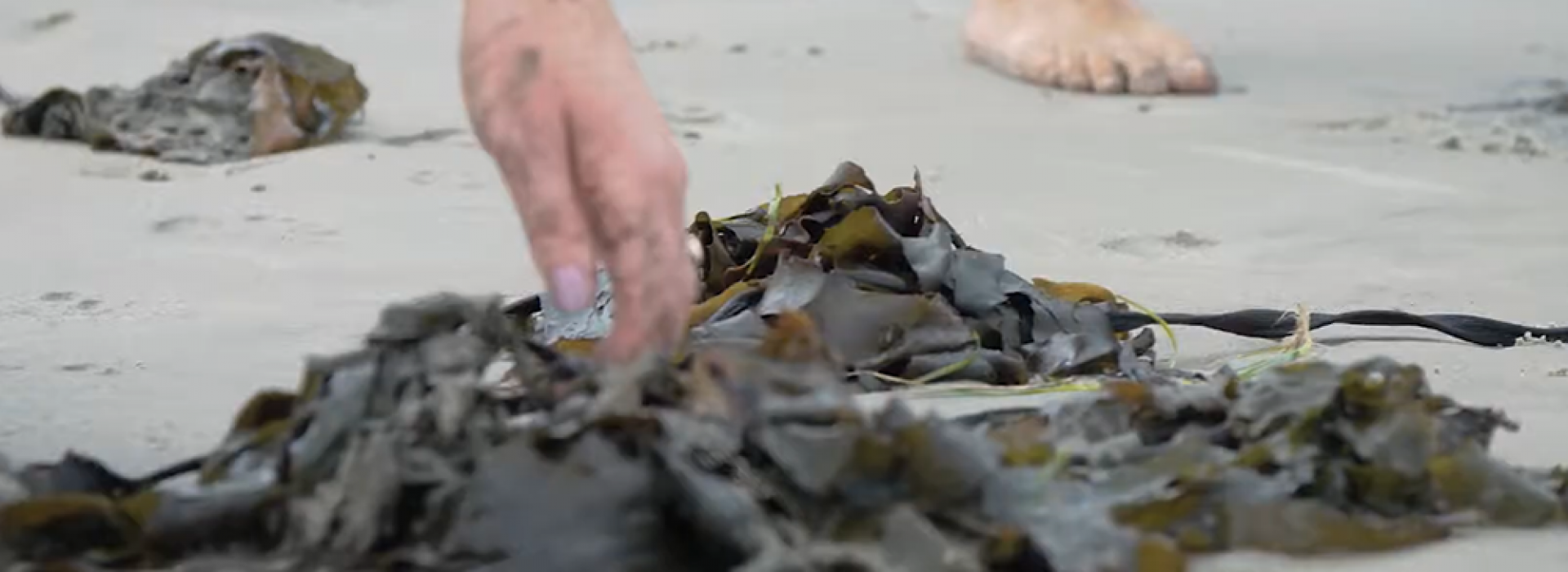
Turning Waste Into Wanted Products
New Zealand scientists and industry are developing high-tech ways to turn untapped resources into valuable products, and kicking the destructive take, make, waste cycle.

New Zealand scientists and industry are developing high-tech ways to turn untapped resources into valuable products, and kicking the destructive take, make, waste cycle.
New Zealand innovators are taking responsibility for the waste we produce, such as unwanted clothing, textiles, seaweed, kelp, pineapple leaves and algae. By developing sustainable production systems, they’re turning this waste into valuable products and helping transition Aotearoa New Zealand into a circular economy.
Here are three New Zealand companies utilising untapped waste resources to create something useful.
Turning clothes into roads
Globally, the clothing and textile industry creates more greenhouse gases than shipping and aviation combined. New Zealand sends around 220,000 tonnes of textiles to landfills every year.
Using unwanted textiles, Usedfully® in partnership with Crown Research Institute Scion, have created a circular system to reuse the untapped resource of unwanted clothing and textiles and have developed an industrial scale product called StrengthTex – for use in the roading industry.
StrengthTex could replace cellulose, which is currently imported as a roading additive in asphalt for stability and strength. The first road using this high-value, second-generation product has already been laid in Wellington.
Reusing this resource could divert textile waste from landfills, potentially reducing New Zealand’s greenhouse gas emissions by 400,000 tonnes each year. Is that your old pair of jeans you’re driving on? It could be!
Making crystals from seaweed
Nanocellulose is a manufacturing product used to make items such as batteries, adhesives, biomedical supplies, and cosmetics. Unfortunately, most of the world’s supply of nanocellulose is produced using wood pulp treated with harsh chemicals.
In a world-first, AgriSea New Zealand has been working with Scion’s expert wood pulp scientists to create this versatile polymer from seaweed and kelp waste, turning a by-product of their core business into additional high-value products.
This new nanocellulose replaces non-renewable nanocellulose and diverts waste products from landfill. These versatile polymers are an environmentally superior product and one that adds economic value to AgriSea’s business and the wider aquaculture industry. Another great example of turning waste into something that’s wanted.
Creating shoes out of pineapple leaves and algae
“Why does everything have to be made from plastic?” That’s the question YY Nation Shoes always ask themselves, and the answer can be found by turning to nature instead.
Made from pineapple leaves, algae, ethically sourced merino wool, as well as recycled ocean plastics, YY Nation set out to create the world’s most sustainable shoe. Their use of these natural materials and purposeful design is putting environmental stewardship at the core of their business.
This innovative New Zealand sneaker brand started up in 2020 and has been launched in the US and New Zealand. A recent highlight was an invitation to occupy the ground floor of the Soho department store Showfields for a six-month showcase. It seems that walking on waste is working out.
Looking for somewhere that’s turning waste into something the world wants? We know a place.